Rec Sports
Simone Biles’ coach Aimee Boorman: Finding ‘balance’ wasn’t easy


Simone Biles’ message for foster care children: ‘You can do anything’
Simone Biles is a national ambassador for Friends of the Children, and she shares her message for children in foster care.
“Simone never would have made it in my gym.”
Aimee Boorman has heard that line, over and over, from other coaches when they talk about the gymnast she helped lift to heights never seen within their sport.
“They say it with a sense of pride,” Boorman tells USA TODAY Sports, “and it’s like, ‘So you realize how many potential Simones you have pushed out of your gym?’ “
Biles was the kid who always loved the gymnastics part, but not the work that went into making her the best. Some days she just wanted to go home.
Those characteristics didn’t necessarily change as she grew into the decorated champion America knew. Boorman, though, was willing to manage them in a way others wouldn’t.
Biles’ coach from age 7 through her four-gold-medal performance at the 2016 Rio Olympics remembers her as one of her more challenging pupils.
“If everybody is just strict and obedient, you grow stale as a coach,” Boorman says. “So when you have somebody who’s throwing something new at you all the time, on an emotional level, on a personality level, you gotta grow. And I think some of those other coaches weren’t willing to grow.
“When people say, ‘Well, there’s only going to be one Simone,’ I’m like, ‘That’s not true.’ You have to know how to manage that athlete to get them to the point they could be a Simone.”
Boorman’s approach – nurturing, forgiving, even relenting – was novel to coaching within a sport of forced discipline and regulation. She lays out her methodology, ingrained in her by a tumultuous childhood experience, in “The Balance: My Years Coaching Simone Biles.”
The book, which was released last week, reveals a back story of how athletes develop and mature but also how they can have giggles on their face before and after their most triumphant Olympic moments.
Boorman and co-author Steve Cooper spoke with us about facing unique challenges while coaching and parenting our athletes and how we can overcome them in unexpected ways.
“Nothing about Simone’s greatness was inevitable,” Cooper said during our Zoom interview. “It was a process. It wasn’t just luck.”
‘If it wasn’t fun, she wasn’t having any part of it’: Without love for a sport, it’s difficult to move forward
Boorman is often asked if she knew when Biles would become superstar. The answer: When she became one.
“Up until that point, anything can happen,” she says, “and any given day, if Simone didn’t have that passion and that love for gymnastics inside of her, she could be like, ‘I’m done. I’m gonna go run track.’ “
Boorman recalls the joy she felt as a young girl in the early 1980s, when she first flung herself from the bars of Lakeshore Academy in Chicago, but also how quickly a reckless coach drained it from her.
No matter how long she stood on the balance beam, her arms raised until they were numb trying to get Coach Jeremy’s attention, he wasn’t satisfied. His name is a pseudonym, but also an extreme archetype for an era of the sport: No positive reinforcement, no acknowledgement of effort and sometimes little hope.
“That constant negative input made me have total lack of belief in myself,” she says.
And yet, like most kids, Aimee yearned to please him. She arrived early one day, straining to grab his undivided attention by working out on her own. She broke her leg. Then he ignored her for months until she finally quit.
“I was really useless to him because I couldn’t compete,” she says.
She was pulled back when she coached preschool kids after school a couple of years later. There was something bright within them that she used to feel, something we can so easily push out of young athletes if we don’t nurture it. It was a light she saw in a 7-year-old who bounced around Bannon’s, the gym north of Houston where Boorman started working as a young adult.
Simone Biles couldn’t sit still, but when she did, she pushed herself up off the ground with her arms and slid her legs from straight in front of her to a position in which she was lying on her stomach.
“What she was doing is not normal,” Boorman says. “We knew that she was going to be able to learn very quickly, but she was just a little girl, and she didn’t like to do the conditioning, and she didn’t want to have to take extra turns. She just wanted it to be fun. And when it wasn’t fun, she wasn’t having any part of it. She didn’t want to be involved at all.”
COACH STEVE: 70% of kids drop out of youth sports by 13. Why?
‘There is no possible way you could disappoint me’: Every day, even a bad one, is an opportunity to move forward
Like other kids, Biles had fears. One was a mental block on her beam series. Boorman would ask her to complete it three times, but would never leave her out there too long like Jeremy had done. They would just come back the next day and try again, a give-and-take that would continue throughout their time together.
“There were times that she would come in the gym in the morning and she would have a sense of dread about what she was going to have to do based on what she did or didn’t finish the day before,” Boorman says. “And I hope that when she walked in and saw me, and I was like, ‘Good morning,’ and I was very light with her, that then she could go, ‘OK, wait a minute. Maybe I’m not in trouble. Maybe I didn’t disappoint her.’ “
Boorman, through the torture, had felt like she was letting Coach Jeremy down. To this day, she tells her students, “There’s no possible way you could disappoint me.”
It’s up to them, not her, what they became. It’s her job to support what they want.
“As a coach, you could never want it more than the athlete,” she says, “and if you do want it more than the athlete, then there’s a problem. I know a lot of overzealous young coaches who are like, ‘Oh, but I want an Olympian,’ but you’re never going to have an Olympian because that’s what you want.
“If we focus too much on the championship and on that win, then we’re losing the human in the process.”
She likes to live in a “compliment sandwich,” where constructive criticism is surrounded by praise of effort, even on so-called bad days. Those are a matter of perspective, anyway.
“I have an elite gymnast (who) had been out of the gym for a couple of months, not really training, and she came back in and successfully did a skill that she hadn’t done in two months, and she was like, ‘That was terrible,’ ” Boorman says. “And I was like, ‘You haven’t done it in two months, and you did it. We’re going to celebrate those wins, and it’s going to be better tomorrow.”
Boorman wanted her students to be comfortable around her so they would express themselves. That way, she could see deep inside and better understand them.
“Simone’s not a person to go (in) the corner and go through her stuff in her head to get her in the zone,” she would learn. “She has to be there, completely relaxed, cheering on other people. And then when the green light goes on for her to compete, she’s like, game on. But she doesn’t waste any of that in her mind. In her mind, that focus is a waste. Other athletes are completely different.
“So it doesn’t say anything about what process is correct, but it’s what process is best for each athlete. So for younger coaches who are bringing up the athletes who are not elite yet, you have to give them all of the different tools, and they’re going to find out which process works best for them.”
‘Its just gymnastics’: The needs of the athlete – not those of the coach – have to come first
Biles realized her connection with “Coach Aimee” at 13, when she was invited to a U.S. women’s national team development camp and saw teammates who weren’t as close with their coaches.
They all trained under the strict orders of the program, which wasn’t for Biles.
“People who are ridiculously talented don’t have to work that hard,” Boorman says. “So when she had to work hard because she was struggling with something, she was not the most pleasant to be around, because it was very frustrating for her and it was easy for her to give up. I can say she was incredibly dedicated. I can’t say she was an incredible hard worker. She knew it became the job that she chose to do and coming in and putting in the hours and everything. But I’ve known a lot of people who are much harder workers, I guess is the gentle way is to say it.”
Martha Karolyi, the program leader, called Biles sloppy and lazy at one of her early visits to camp. Boorman says that killed her confidence, and she declined their next invitation.
Biles didn’t start training a lot of hours until she was 16 or 17.
“If we had focused on the refinement earlier, she could have been winning meets earlier, but there was also the risk of burnout,” Boorman says.
Those mid-teen years coincided with what Boorman calls the toughest days coaching Biles.
“It was never, ‘I don’t want to do this, I want to do this,’ ” Boorman says. “But there were the normal teenage antics, the head butting and things like that. And so I had to be very strategic about when I would push and when I would let go. I know this can be construed as you’re kicking somebody out of practice, but there would be days that I would say, ‘I think practice should be over for today because we’re not getting anywhere. Neither one of us is having fun.’
“And sometimes she was like, ‘Bye,’ and other times she’s like, ‘No, I’m sorry. I want to get this done. I’m just frustrated.’ But no matter what every day was, we turned the page.”
Ahead of the U.S. Classic in 2013 in Chicago, Boorman says Biles intentionally fell off the apparatus, jumped off the beam and let herself fall on her vaults. It was her way, her coach said, of controlling an environment where she didn’t want to work.
Boorman wouldn’t force Biles through workouts, but she would let her fail in competition to make a point. When she took a nasty fall, they moved on to the next event.
“I’ve always been a big supporter of family vacations and take the day off,” Boorman says. “We need mental health days. When I was a gymnast, there was no such thing, and I think that there’s too many sports in general, they want you to come in when you’re sick, when you’re tired, when you’re mentally exhausted, because that’s going to build character. And I just disagree with it. I feel like, if you take one day off and you rest, you’re going to come back so much stronger.
“It’s just gymnastics. You shouldn’t be risking your health just to achieve a sports goal.”
When she was no longer working with Boorman, Biles removed herself from the 2020 Games when she developed “the twisties.” She had concluded, Boorman says, that “the Olympics were not more important than her life.”
“I think somewhere in her she knew it was going to be OK, and I think that was probably because early on in her career, it was OK to just pull yourself from the competition,” says Cooper, Boorman’s co-author.
Overcoming ‘the twisties’ in 2016: ‘You only have to live up to your own expectations’
The twisties occur when a gymnast can’t tell where he or she is in the air. Biles also beat them ahead of the Rio Olympics, which Boorman reveals in her book.
She was 19 and had won three all-around world championship titles in a row and feeling the weight of being the favorite in her first Olympics.
Instead of forcing twists, Boorman temporarily removed them from Biles’ routine, which relieved the pressure.
“And each day I would say, ‘OK, do you feel like twisting today?’ And she’d be like, ‘Well, yeah, but I think I can only go off beam.’ And so she would only do her beam dismount.’ She wouldn’t twist off bars or floor or falls.
“It would be baby steps from there. She might come in one day and say, ‘OK, I think I’m ready to do this today.’ And then she would start to do it and be like, ‘No.’ And I’m like, ‘OK, don’t worry about it. There’s so many other things we can do.’ And then instilling that confidence in her that she wasn’t going to lose her skills was important as well.”
They were relying on the repetition they had already done.
“We had taken so many years to refine them that the muscle memory was there,” Boorman says. “We just had to clear out her brain.”
They gradually noticed she was cured over time, like the way we notice other peoples’ children growing, then realize ours are, too.
“I always told her that she wasn’t responsible for other people’s expectations of her,” Boorman says. “That was their problem and shame on them for setting those expectations. She only had to live up to her own expectations.”
(This story was updated to add new information.)
Steve Borelli, aka Coach Steve, has been an editor and writer with USA TODAY since 1999. He spent 10 years coaching his two sons’ baseball and basketball teams. He and his wife, Colleen, are now sports parents for two high schoolers. His column is posted weekly. For his past columns, click here.
Got a question for Coach Steve you want answered in a column? Email him at sborelli@usatoday.com
Rec Sports
Officials explain hotel, youth sports plans tied to John Stiff Park

AMARILLO, Texas (KAMR/KCIT) — City officials are providing more details about a proposed development plan for John Stiff Memorial Park, addressing questions about the possible hotel and how the park would coexist with a youth sports facility currently under construction.
The plan was discussed by the Amarillo City Council earlier this month, outlining long-term options for part of the park and providing that future development could help fund park improvements.
Amarillo Parks and Recreation Director Michael Kashuba said a hotel is one of several potential uses being considered as part of a broader mix of development.
“One of those potential allowable uses is a boutique hotel. With no existing hotels in Southwest Amarillo, a small-scale hotel could fill a market gap while enhancing the destination appeal of the development,” said Kashuba. “A small, boutique hotel would accommodate the many visitors coming to Amarillo to attend recreational sports tournaments or to visit family members. A hotel would also support large community special events and generate additional economic development for the community.”
Kashuba said the hotel would be part of a wider set of amenities intended to support park users and visitors.
“The recommended commercial program features diverse dining and food options scaled to serve different community needs,” he said. “A thoughtfully diverse mix including food and beverage establishments, small-format retail, and experiential concepts creates synergistic benefits through shared foot traffic.”
Questions have also focused on youth sports usage at the park and whether the new Kids Inc. sports complex under construction could affect attendance.
“Youth sports is just one of many activities that occur in John Stiff Park,” Kashuba said. “The park is actively used daily by walkers, disc-golfers, skateboarders, tennis, pickleball, padel players, adult softball leagues and youth sports.”
Kashbua said large youth sports tournaments typically rely on multiple facilities across Amarillo.
“When the large youth sports tournaments come to town, it is common for all the fields in Amarillo to be used for the youth tournaments,” he said.
According to Kashuba, the Kids Inc. sports complex could create additional opportunities at John Stiff Park by shifting some activities elsewhere.
“When Kids Inc. moves its activities to its facility, it will allow the city to expand the adult softball leagues and tournaments and provide the fields to other user groups, which are actively looking for a place to call home,” Kashuba said.
City officials said the development plan is a long-term concept meant to guide future planning. Any proposed project would require additional financial review, public input and approval from the city council before moving forward.
For the latest Amarillo news and regional updates, check with MyHighPlains.com and tune in to KAMR Local 4 News at 5:00, 6:00, and 10:00 p.m. and Fox 14 News at 9:00 p.m. CST.
Rec Sports
Nevada youth rank last in sports participation. Will rising costs make it worse?
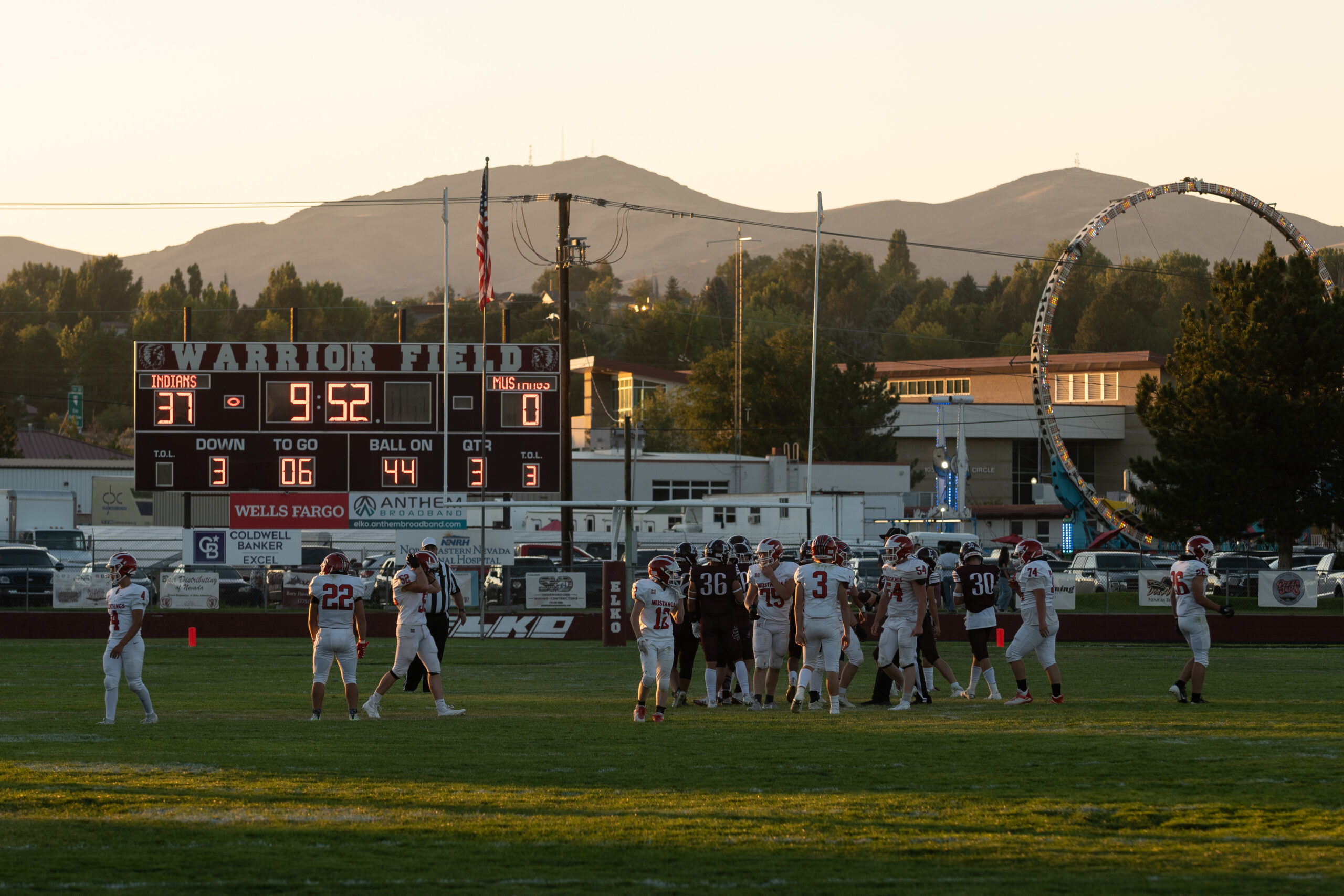
Lorena Llamas’ teenage son is obsessed with football. In Nevada, that means suffering through practices in direct sunlight and on scalding-hot turf.
“The heat is killer,” said Llamas, a mom of two in North Las Vegas. Her son, a high school senior, has seen teammates throw up during some practices. “He’ll always say, ‘Mom, my feet feel like they’re on fire.’”
Parents and experts told The Indy that heat is just one reason that Nevada consistently ranks last nationwide for participation in youth sports. High costs and complicated scheduling issues also play a big part.
Nevada has had the lowest or second-lowest rate of children on sports teams every year since 2017 except 2019, according to data collected through the National Survey of Children’s Health (NSCH), a project of the Census Bureau, and analyzed by researchers at Johns Hopkins University.
Although standalone data for 2024 is not yet available, new data shared with The Nevada Independent on the last two years combined again shows Nevada coming last in sports participation, even as its rate ticked up slightly.
Nationwide, in 2023-2024 nearly 57 percent of children between the ages of 6 and 17 were part of a sports team or club. In Nevada, it was just 46 percent.
“Nevada was always a state that was never thought of for sports,” said Llamas. She attributed the lack of a robust sports culture to Nevada’s heat and smaller number of higher education institutions or major sports teams. Llamas has noticed more young people getting excited about playing football since the Raiders came to Las Vegas in 2020.
“Our players do not get enough attention here,” she said. “There is so much talent in Nevada.”
Below, we dive into some of the factors that contribute to Nevada’s lagging sports participation and break down the data.
Increasing costs
Most states, including Nevada, have seen sports participation rise since the COVID-19 pandemic, when most schools canceled programming for at least a season.
But even before the pandemic, Nevada’s participation rate was consistently lower than the nation’s.
Data from the National Federation of State High School Associations shows the number of student-athletes in Nevada high schools has been relatively stable, going from approximately 45,200 student-athletes in 2015-2016 to approximately 44,800 in 2024-2025. During the same period, Nevada’s high schools added more than 16,000 students.
Richard Rosenkranz, a UNLV professor who studies interventions to boost nutrition and exercise, attributed Nevada’s low participation rates to high costs.
In 2022, his family moved from Kansas City to Las Vegas, where his son enrolled in a public school and joined the school’s cross-country team.
Rosenkranz said he and his wife were “shocked” by the team’s sticker price. They had to pay almost $500 for their son to run cross-country, a one-season sport. Sports were free at his son’s public school in Kansas.
“Immediately, a lot of Nevada families just cannot afford that,” he told The Nevada Independent.
Sports costs are rising fast nationwide. Project Play, an initiative of the Aspen Institute think tank, found American families spent an average of $1,000 on their child’s primary sport in 2024, a jump of 46 percent, or about $300, since 2019.

Llamas estimated her family spends about $500 each football season, mostly on required expenses for the team and for traveling to games.
She said her family was lucky they could afford these costs.
Statewide, there are wide income disparities in sports participation. According to the national survey’s data, from 2022 to 2023 nearly three times as many students from high-income families (at or above 400 percent of the federal poverty line) played sports than students from low-income families (at or below the poverty level).
Nevada does not waive sports fees for low-income students, as a handful of states do. California outright bans fees for all students.
Rosenkranz blames rising expenses on cultural shifts, which have transformed youth sports from a more casual form of fun into a high-pressure industry oriented toward college recruitment.
“We’ve essentially professionalized a lot of sports,” he said. To remain competitive, Rosenkranz said, academic and extracurricular sports programs need to hire full-time coaches, upgrade facilities and equipment, and travel to tournaments.
Programs pass some of those costs onto families, or families find themselves spending more in private lessons or new gear.
In its 2024 report, Project Play also blamed the post-pandemic shift to kids focusing on single sports, making competition even more intense and expensive.
Unique “burden” in Nevada
Experts say Nevada’s reliance on shift work and shorter-term labor further complicates access to sports.
“It poses more of a financial burden in a state where … so many parents have multiple jobs in the service industry, where kids have higher shares of parents who can’t afford it,” said Rosenkranz.
Many parents work in the state’s 24/7 hospitality industry, where work shifts are longer or later than other jobs and where families cycle in and out of the state more often. Census data also shows that Nevada has a higher share of households where every parent works, at 59 percent in 2024.
That makes it harder for parents to bring kids to practice, Rosenkranz said, especially in a state with limited public transportation.
“Obviously, Vegas is a very transient town where people work all kinds of jobs. It’s a 24 hour city,” said Scott Blackford, director of programs at Nevada Youth Sports (NYS), an organization that runs recreational and club sports in Southern Nevada and manages charter schools’ sports leagues.
To accommodate scheduling issues, “We try to offer different programs, whether recreational leagues or competitive leagues, or camps, clinics, all the different programs you can offer, to fit individual families,” he said.
Although NYS usually doesn’t work in traditional public schools, he said the group has run some pilot programs so that “a child can stay after for an hourlong practice, in case mom and dad couldn’t take them to practice that night.”
NYS also offers shorter-term programs where families commit to sports only for eight weeks. Programs such as these expand the group’s demographic reach, Blackford said, even as costs rise.
“We pride ourselves on trying to not raise prices,” Blackford explained. “But, you know, everything is going up across the world.”
Other factors
Nevada’s intense heat creates further problems.
Synthetic turf fields are increasingly popular for field-based sports due to their lower maintenance costs than grass. But research has shown such fields can be 50 degrees hotter than grass.
“The shade infrastructure is horrible; the weather is hot all summer. There’s an immediate lack of enjoyment,” said Rosenkranz.
But Blackford said Nevada’s temperatures could be a plus by enabling yearlong sports programming.
“Summer is going to be a little tough, but if you’re born and raised in Arizona or Nevada, you’re kind of used to it. … We’re fortunate to have four seasons of sports a year,” Blackford said, while admitting that finding air-conditioned facilities can be a struggle.
Rosenkranz said Nevada’s low sports participation reflects the state’s generally poor mental and physical health outcomes.
Earlier this year, a bill mandating daily recess in Nevada’s public and charter schools — which is required in only 13 states — failed in the Legislature.
“Are there places where they can play before school? Or in the classroom, at recess, at physical education — all of the activities that happen during the school day?” Rosenkranz asked. “Or are we just asking kids to sit quietly in a lunch room?”
In 2024, only 9.1 percent of Nevada’s 12-through-17-year-olds were physically active for an hour every day. The nationwide rate was 14.9 percent.
Nevada also reports higher rates of depression, suicide and substance use disorder among youth. It ranked last among states in the 2025 and 2024 surveys of youth mental health by the nonprofit Mental Health America.
Boosting sports participation could help address these issues, Rosenkranz said, adding that sports lower the risk of chronic disease and improve mental health by giving kids a chance to socialize, resolve disagreements and challenge themselves.
“Also, sports are fun,” he said. “And people should be having fun.”
Rec Sports
Championships And Individual Honors In Newtown Sports – The Newtown Bee
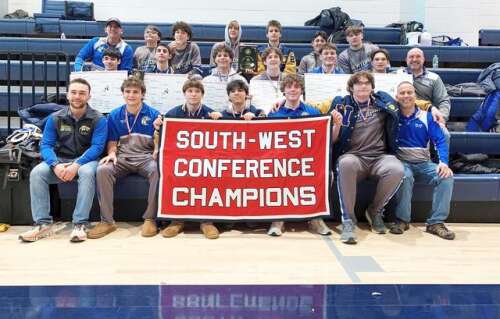
Published: Dec 28, 2025 7:00 am
From repeat championship performances to individual success stories, 2025 had it all in the world of Newtown athletics. The Annual C.H. Booth Library Turkey Trot drew a record 1,700-plus participants. There were awards earned by coaches, an athletic director, and athletes. Here is a look at what unfolded in 2025:
*It was a trifecta for the Newtown High School cheerleading team, which won South-West Conference, State, and New England Championships.
*The NHS boys’ golf team made it a three-peat, winning its third straight SWC Championship in the fall.
*NHS boys’ golf set a new standard with a program-best score of 141 in a match against Stratford at Rock Ridge Country Club.
*Newtown High School’s dance team won a State Championship.
*NHS wrestling won the South-West Conference title with six individual champs, nine finalists, and 13 place-winners.
*Wrestler Marc Maurath became Newtown High School’s winningest grappler when he earned his 161st victory on the mats (he finished with 188). Maurath also reached an impressive milestone with his 100th career pinfall victory.
*NHS wrestler Kenna Gioffre (second all time with 171 wins) won a State Open Championship in his weight class.
*NHS Wrestling Coach Chris Bray earned his 100th dual meet victory. The wrestling milestones continued as Kenna Gioffre and Marc Maurath joined the 150-win club, Gioffre also earned his 100th pin, and Charlie Dunn, Antonio Arguello, and Jake Maddox all earned their 100th career victories on the mats.
*The NHS indoor girls’ track team made it back-to-back SWC Championships in the winter, then made it three consecutive spring outdoor track and field SWC Championships.
*Newtown’s boys’ runners got in on title success as the cross country team raced to the conference crown this fall.
*Grade 6 girls’ and grade 5 boys’ basketball teams claimed New England tourney titles.
*The U10 Hawks baseball team won its second straight state title and reached the Elite Eight at the Cal Ripken World Series.
*Newtown’s 11-year-old baseball team won a New England Regional Championship.
*Newtown Youth Basketball Association President and Coach Tom Martinez was named the Newtown Bee Sportsman of the Year.
*Newtown Youth Wrestling captured several champs and place-winners at the USA Wrestling Connecticut State Championships.
*The NHS Athletics Department received the Michael’s Jewelers Achievement Cup, as well as the Fred Balsamo Award For Sportsmanship.
*NHS Athletic Director Matt Memoli was selected as the Unified Sports Paul Mengold AD of the Year.
*Youth wrestler Camron Veneziano captured a National Wrestling Championship.
*Matthew Dos Santos signed a professional soccer contract with Red Bulls II.
*NHS track and field standouts Aashni Shetty (long jump) and Elias Brady (triple jump) won State titles. Shetty broke multiple school jumping records during her senior year.
*Tristan Rosenschein was named to the 15U National Lacrosse Team.
*Sandy Hook’s Mackie Samoskevich brought the Stanley Cup back to town after his Florida Panthers won the game’s biggest trophy.
*50 in 50: Bruce Goulart accomplished his goal of running a marathon in all 50 states.
*NHS Lacrosse Coach Maura Fletcher earned the SWC’s Outstanding Coach Award.
*Stephen Kopcik won the NAPA Sports Sizzler at Stafford Motor Speedway.
*NHS football player Travis Rekos earned the first Bob Zito Coach’s Award.
*Among the notable passes of the baton this past year was Debi Modzelewski retiring and Stacey Nasser taking over as assistant to the athletic director at NHS.
*On the coaching front, Tricia Harrity took over the NHS gymnastics team, and David Warren is the new head coach with NHS track.
There is sure to be much more excitement in store as we flip the calendar to 2026. See you at the games!
Sports Editor Andy Hutchison can be reached at andyh@thebee.com.
The NHS wrestling team won the SWC Championship. —photo courtesy Daryl Maurath
Aashni Shetty set multiple jumping records at NHS. —Bee file photo
Bruce Goulart completed his quest of running a marathon in every state with a 26.2 mile effort in Illinois on July 15. The road race enthusiast is far from done. He is approaching the finish line of Run 169 Towns Society, a group that completes a race in each of Connecticut’s towns/cities. —photo courtesy Jan Brown-Goulart
Newtown High’s boys golf team won its third straight SWC Championship, scoring 307 at Fairchild Wheeler Golf Course in Fairfield on October 14. Pictured are, from left: Coach Shawn Tierney, Will Lokey, Quinn Kull, Nate Pickard, Jack Wishneski, and Aidan Andreotta. —photo courtesy Shawn Tierney
Rec Sports
Winter training and staying active in the “off-season.”

Everyone has different methods, but staying active is key
It’s always easier to get outside and be active in the sunshine when there is plenty of daylight, unlike now, unfortunately.
As a professional athlete, staying active all year long is a must. While many people take the winter months to recoup, mellow out, or even hibernate a little, most cyclists in the professional scene train throughout the coldest months. It’s not always easy to do, and it certainly requires some flexibility and creativity, especially living in a snowy place like Durango.
When the competitive off-road race season wraps up in October, many of my competitors (myself included) make plans for what is generally called “the off-season,” or as my coach likes to call it, the “out of competition season.”
This is typically a period of 2-4 weeks during the fall in which cyclists take a break from training and racing. Lots of folks use this time to travel, sit on the beach, see family, or just have a more “normal” day-to-day that isn’t centered around a training schedule.
Personally, I use this time to catch up with friends and spend time baking! If the weather is still pleasant for mountain biking, I use the off-season to ride more recreationally, going slower, stopping frequently for snacks, or only riding when I feel like it.
Since being a professional requires following a slightly more stricter schedule (prescribed time and intensity) when it comes to rides, it’s always nice to have more freedom in the off-season. Additionally, many athletes will use this time to build in some new activities like running, gym work, or, like me, pickle ball.
Ironically, many professionals start training again just as the weather turns to winter. Living in Durango, it’s always a gamble on whether the snow will fly early or if there will be an extended fall, which is where creativity and flexibility come in when you start riding again.
This fall and early winter, for example, have been great for the Durango professional cyclists and recreational riders alike, but not so much for the skiers! As the winter progresses, many athletes have a choice to make: stay home and figure out how to train through the snowy months or travel to a warmer location for training. I love doing a bit of both!
Some people do other activities or sports after their competitive season; through the winter, many cyclists keep up with these activities as cross-training.
I love having running and gym work on my training plan as I start to build more hours on the bike. This way, if there are a few snowy days, it’s easy to have a productive training day while mixing in other activities.
A typical winter training day for me could start with a morning run with my dog, followed by an afternoon session on the indoor trainer bike. However, it could also look like a very bundled-up 4-hour ride with friends!
Since the weather is so variable, it’s important to have some options. Many coaches will provide key bike workouts to be done inside, while leaving wiggle room for more aerobic, long endurance activities outside.
The winter months are generally a time for cyclists to build back their fitness, beginning with what is called base training. Typically, this is when professionals will log a large volume of time on the bike to train the body to burn fat and be ready to build on their fitness for more intense efforts later in the spring. I usually aim to ride 14-22 hours per week throughout the winter training months.
When riding is not possible due to snow or wet roads, I turn to other endurance sports like Nordic skiing and running. Since this phase of training requires so much time on the bike, many cyclists will opt for a trip to warmer locations to make it easier to get hours in.
While it isn’t always easy to get out the door with many layers on or while it’s snowy and cold out, I actually enjoy the change of pace and the challenge of getting my training done during the winter. I love mixing up the different ways I push my body and, I like to believe that it builds perseverance. Plus, spending more time at home is always an added bonus because I travel so much during the racing season.
My advice to anyone who is looking to stay active in the winter or wants to build some fitness towards a spring goal is to stay consistent and keep it fun! Big hours on the bike are not a requirement, but moving your body frequently is certainly a key to success.
Whether it’s hiking in the snow with family, going to the rec center to swim or work out, or staying home on the treadmill, keep it fun! As winter gets going, you might be seeing more cyclists on the road training, and it’s a good reminder to use that as inspiration.
P.S. If you don’t ride bikes or don’t ride in the winter, but you see us bundled up out on the roads, we know we look silly! But, for some of us, it’s our job, and it can be quite fun!
Rec Sports
A year of building big
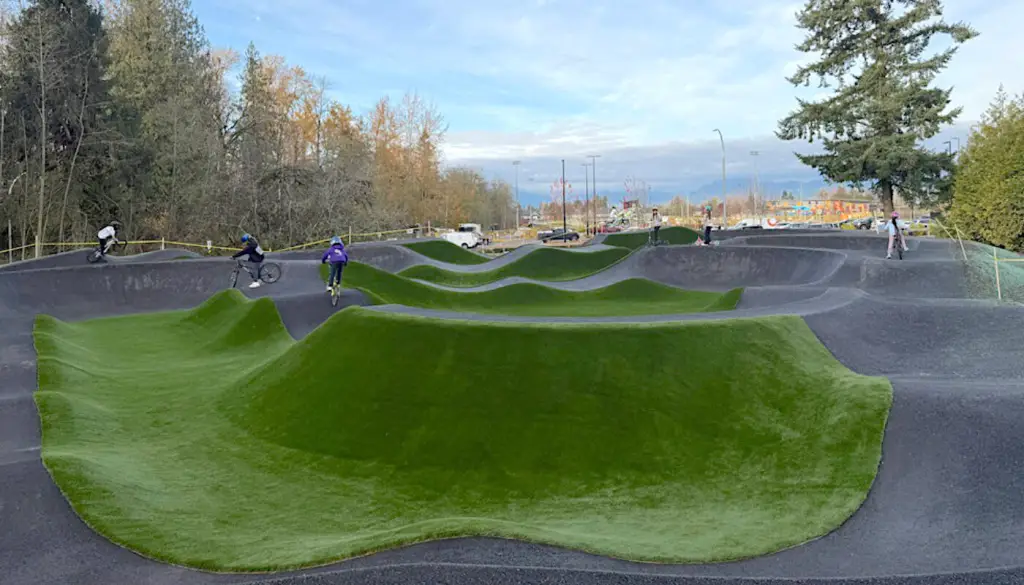
A year of building big
Published 11:45 am Saturday, December 27, 2025
Dustin Worrall, president of Langley BMX, was delighted with the new pump track that officially opened on Nov. 20 in Yorkson Community Park.
“It’s huge, actually,” Worrall responded when asked how significant the facility is.
“What was there before was like a dirt jump kind of track, which was never used,” Worrall told the Langley Advance Times.
“I don’t know if you’ve seen how many kids are out at the pump track now, but especially for a growing area right there with all the condos going up, it’s huge. It’s heavily used. It’s good to have kids on bikes and outdoors rather than sitting behind video games.”
Pump track racing is a sport where riders traverse rollers, banked turns, and other features designed to be riden by “pumping” a bike with up and down body movements.
Like a lot of growing sports, it’s been struggling to find space.
Until the new Township track opened, there were two such facilities in the Langley area to accommodate pump track racers, one at Penzer park in Langley City, and a “very small one” at the Langley BMX track near George Preston Recreation Centre, Worall said.
A new pump track isn’t the only upgrade to Yorkson, which has also added a new spray park, washrooms, parking, a rugby field for Yorkson Middle School, 200 new trees, and what Mayor Eric Woodward describes as “the best playground the Township of Langley has ever built.”
Next year, more washrooms, picnic areas, Yorkson Creek Trail, and a half-kilometre walking track around the existing fields are in the works – depending on public consultation.
It’s just one of several ambitious projects in the Township, part of a sports building boom to provide more room for sports struggling to find space, especially those with younger athletes.
Woodward has noted Langley has the highest per capita youth population in Metro Vancouver, nearly triple that of Vancouver.
Kid need places to play, and the Township has been busy building those spaces.
Biggest is the $149-million expansion of the Langley Events Centre, set to open in September 2026, with three more ice sheets, two year-round dry floors, a 1,200-seat main arena, 380 underground stalls, a new restaurant, and outdoor plaza.
Local youth sports leagues are champing at the bit.
And there is the second phase of Smith Athletic Park in 2026, adding new soccer fields, including one indoors and a host of other improvements, on the way to becoming an education and youth soccer athletic campus.
Further down the road, a proposed new Willoughby Community Centre will include a 37.5-metre lap pool, which is expected to help reduce waits for kids swim lessons.
Rec Sports
First-ever Cenla New Year’s Classic brings youth football tournament to Alexandria
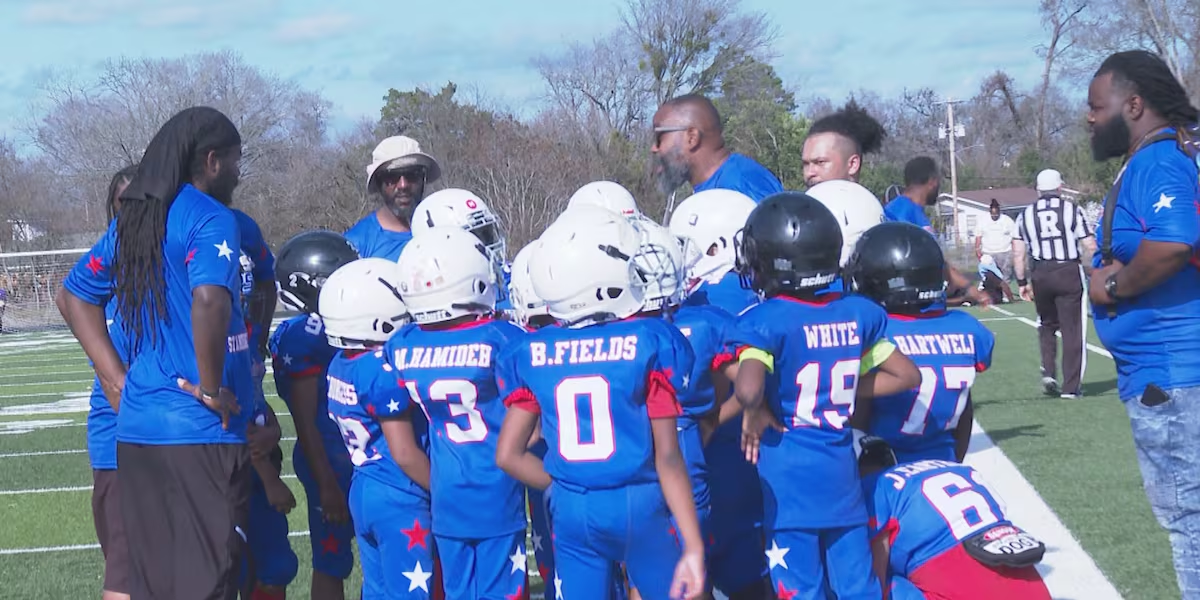
ALEXANDRIA, La. (KALB) – Youth football teams competed for a $500 cash prize during the first-ever Cenla New Year’s Classic this weekend.
Event organizer Kelvin Franklin brought together 8-U, 10-U and 12-U football teams for the tournament at Peabody High School.
“This is truly a high competitive environment and it’s all what this area needs. It starts with the youth. It starts with the youth all the way,” Franklin said.
Franklin said the tournament addressed a need in Central Louisiana.
“I had to make it happen. I wanted to make it happen. We’ve never had a tournament here at all, ever,” Franklin said. “Places in Texas and Georgia, Florida, California, stuff like that, they get to do these type of things and it’s big. Why can’t we do it right here.”
Franklin said he used his platform in youth sports to create the showcase for local athletes.
“It kind of brings a tear to my eyes a little bit, you know, because the support of the city and the support of other people around me and my great crew, great staff, and also Peabody for letting me host this here,” Franklin said.
Local teams competed throughout the weekend, giving young athletes a chance to showcase their skills close to home. Franklin said youth sports teaches lessons beyond the scoreboard.
“It’s great to start them at a young age, you know, because you want to build,” Franklin said. “Football brings great welders, great teachers, great janitors, great everybody. Football just builds everybody even when you’re not playing in college or the NFL as well.”
Franklin plans to make the tournament an annual tradition.
“We’re going to do it every year and this year was the first year, and this next year is going to be way bigger,” said Franklin. ”It’s going to get bigger every year. We have national teams here right now, and there’s going to be some other guys from other places, from other states and stuff that’s going to be here as well.”
Click here to report a typo. Please provide the title of the article in your email.
Copyright 2025 KALB. All rights reserved.
-

 Motorsports3 weeks ago
Motorsports3 weeks agoSoundGear Named Entitlement Sponsor of Spears CARS Tour Southwest Opener
-

 Motorsports3 weeks ago
Motorsports3 weeks agoDonny Schatz finds new home for 2026, inks full-time deal with CJB Motorsports – InForum
-
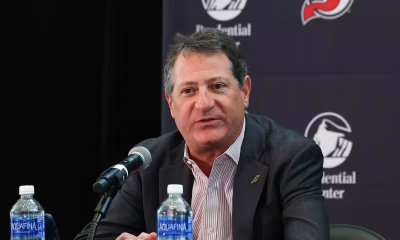
 Rec Sports3 weeks ago
Rec Sports3 weeks agoDavid Blitzer, Harris Blitzer Sports & Entertainment
-

 Motorsports3 weeks ago
Motorsports3 weeks agoRick Ware Racing switching to Chevrolet for 2026
-

 NIL3 weeks ago
NIL3 weeks agoDeSantis Talks College Football, Calls for Reforms to NIL and Transfer Portal · The Floridian
-

 Sports2 weeks ago
Sports2 weeks ago#11 Volleyball Practices, Then Meets Media Prior to #2 Kentucky Match
-

 Motorsports2 weeks ago
Motorsports2 weeks agoSunoco to sponsor No. 8 Ganassi Honda IndyCar in multi-year deal
-

 Motorsports3 weeks ago
Motorsports3 weeks agoNASCAR owes $364.7M to teams in antitrust case
-
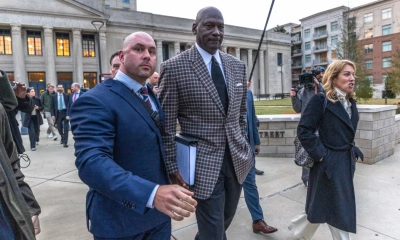
 Motorsports2 weeks ago
Motorsports2 weeks agoNascar legal saga ends as 23XI, Front Row secure settlement
-

 Rec Sports3 weeks ago
Rec Sports3 weeks agoWhy the Texas Sport for Healing Fund Should Return – The Daily Texan































